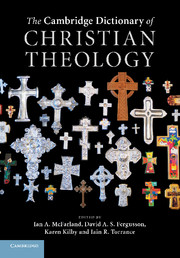Z
Published online by Cambridge University Press: 05 June 2012
Summary
Zwingli, Huldrych Huldrych Zwingli was born on 1 January, 1484 in Wildhaus (Switzerland). After he completed the Latin School in Weesen, Basel, and Bern, he studied in Vienna and enrolled at the University of Basel in 1502, receiving a Bachelors degree in 1504 and Masters in 1506. That same year he was ordained a priest, and was called as pastor to Glarus, where he dedicated himself to intensive study and fostered contact with Swiss humanists like J. Vadian (1484–1551) and H. Glarean (1488–1563). In 1516 Zwingli moved to Einsiedeln and continued his studies, focusing especially on the letters of Paul and the Gospel of John. At the end of 1518, he was called as pastor to Zurich, and in the following years Zwingli matured to a reformer whose sermons found a large audience and were the cornerstone for social change in Zurich.
In 1522, when respected citizens publicly broke Lenten norms, conflict ensued with the bishop of Constance. Zwingli justified breaking the fast in Concerning Freedom and Choice of Food, which was a comparison between the Reformed principle of Scripture and the Catholic principle of tradition. That same year he demanded that the bishop of Constance remove the rule of clerical celibacy and that sermons be preached according to Scripture in his Supplicatio ad Hugonem episcopum Constantiensem, while in his Apologeticus archeteles he rebuked the bishop's authority altogether.
His preaching and actions met with some resistance in Zurich itself, prompting the city council to convene a hearing in January, 1523.
- Type
- Chapter
- Information
- Publisher: Cambridge University PressPrint publication year: 2011



